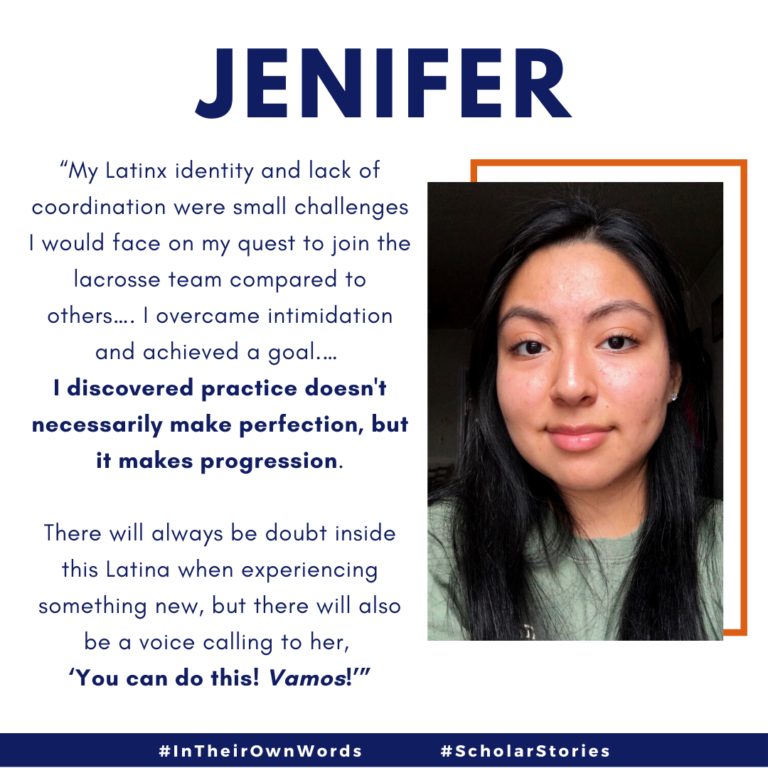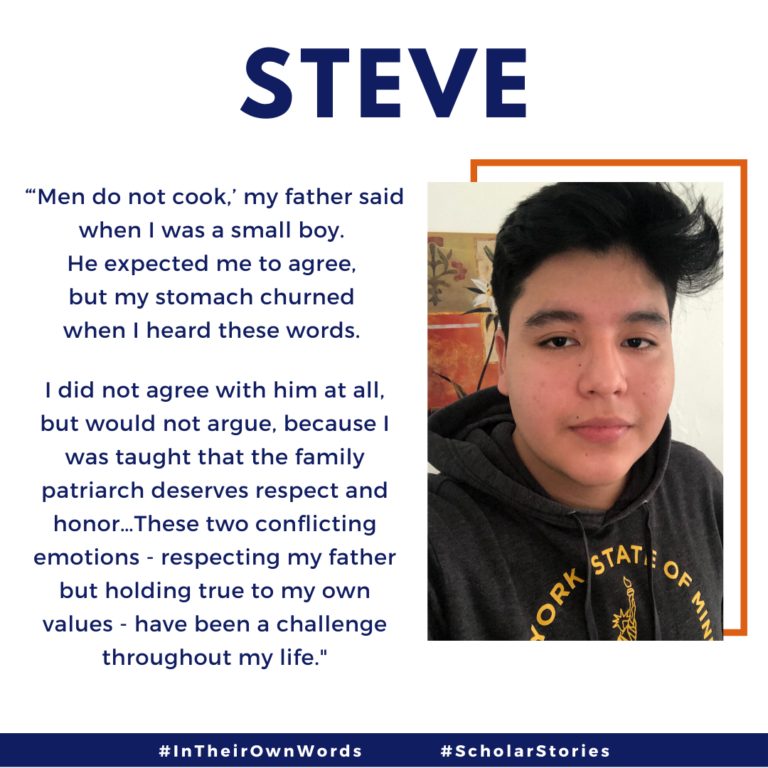LUCA is proud to launch its #InTheirOwnWords series! Over the next few weeks, we will share personal statement essays written by the Latino U Scholars Class of 2021 so that our Scholars can introduce themselves – and share their experiences during these unprecedented times – in their own words. All essays are shared with the permission of each Scholar. The essay below was written by Jenifer, a Latino U Scholar from Ossining High School.

JENIFER’S PERSONAL STATEMENT
A thick blanket of clouds blocks the sun, and the sky looks dull. The March wind gushes past me and takes the nervousness with it. I get closer to the field. My heart pounds. My stomach turns. Panic sets in. One word pops in mind. RUN! I still have time. No one has seen me yet. But then, a voice bursts in: “No. Wait! I have not spent ten frustrating hours watching ‘How to Play Lacrosse’ videos on YouTube in vain. I can do this! Vamos!”
I’m 20 minutes early. I scan the field for familiar faces but see none. The girls are already practicing; my focus goes straight to their hands and wrists. They cradle the ball with ease; their movements seem so smooth, and they make it look so easy. All the girls are fairer and thinner than me and have played lacrosse for three years AT LEAST. None of these girls practice Ecuadorian folklore dances every Saturday for two hours. How did a Latina decide to take part in a sport that is traditionally played by white people?
I don’t identify as an athlete. I am a girl who organizes her closet, cleans, and studies for fun. Madison, who sat next to me in Global Studies, begged me to join the lacrosse team. After many months, she wore me down, and the three-letter word, YES, exited my mouth. The next thing I knew, I was in the lacrosse coach’s office being introduced to him. There was no turning back. While this Latina is unathletic and looks different from everyone else on the field, she sure is determined to try new things.
The summer before high school, I wrote a list of goals I wanted to achieve in the next four years. I remember writing about participating in a sport, although I did not believe I would ever do it. The idea of being part of a team seemed important to the high school experience. What I had not taken into consideration was what sport I would take part in. Soccer and volleyball are commonly played by Hispanics. I grew up watching my dad play soccer, and although I was fascinated by his competitive spirit, deep down, I knew it was not a characteristic I had inherited.
My Latinx identity and lack of coordination were small challenges I would face on my quest to join the lacrosse team compared to others. First, I had to ask my parents’ permission to partake in a sport because I was responsible for picking up my sister after school. Even if they agreed, how does one tell her Hispanic parents that she wants to engage in a sport which many believe is dominated by well-to-do white kids?
My parents, born and raised in the same town in Ecuador, shared the belief that family duties take priority over everything else. It was my role to pick up my younger sister after school each day. Predicting that my parents would be skeptical, I prepared a PowerPoint complete with speaker notes to highlight the key components of lacrosse, and explain the equipment and the rules. Although they were a bit confused, they surprised me with their support.
Playing lacrosse as a Latina opened my eyes. Not only was a stereotype broken, but I overcame intimidation and achieved a goal. Countless hours of practicing stick tricks and running laps earned me a starting position on the team. I discovered practice doesn’t necessarily make perfection, but it makes progression. I started the season with fear and ended it with pride. I discovered an inside voice that urges me to step out of my comfort zone physically, emotionally, and mentally and do things that give me goosebumps. There will always be doubt inside this Latina when experiencing something new, but there will also be a voice calling to her, “You can do this! Vamos!”

